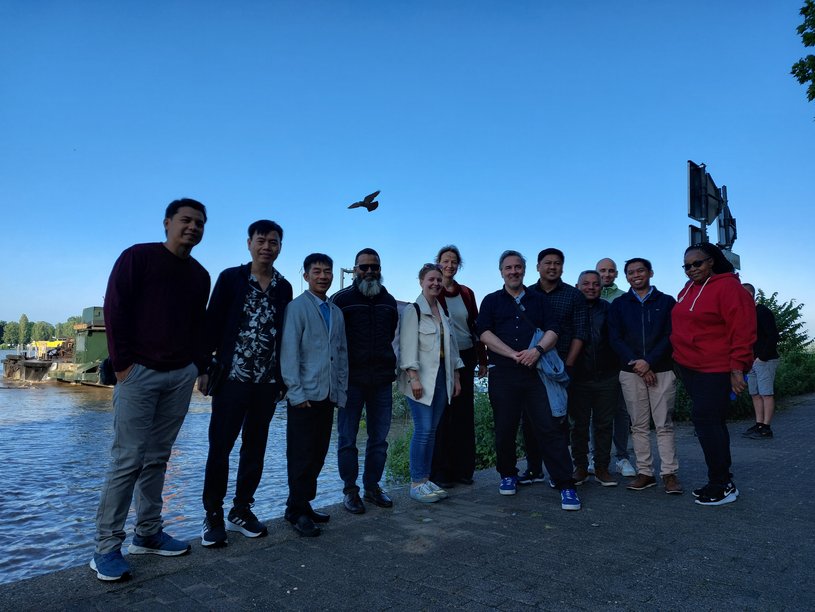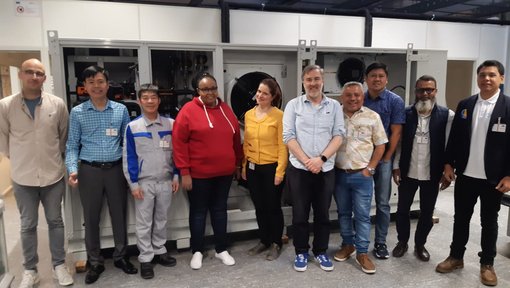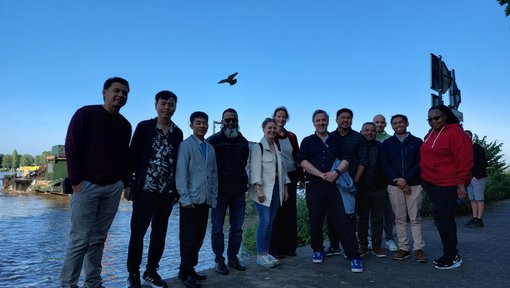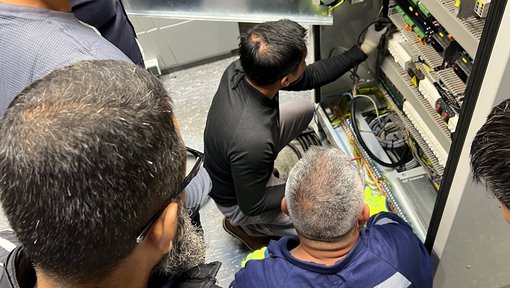Within one week of CO2-Training at the "CO2OLacademy", eight refrigeration technicians and policy makers from the cooling sector learnt how to handle this natural refrigerant.
Eight refrigeration trainers and politicians waited exited for the first day of their training in front of the hotel – they were all looking forward to finally start it after weeks of online preparation and organization.
All of them participated in a 12-hour online training on CO2 transcritical systems with Ejector for supermarkets which took place to build basic knowledge on CO2 as a refrigerant. It was open to more than 100 Refrigeration and Air Conditioning (RAC) technicians and trainers worldwide. Out of these participants, the 8 persons were nominated for the in-depth, hands-on practical training in Germany, where they could simulate the functioning of a CO2 supermarket system, including practicing how to solve problems like leaks.
"It is essential to ensure that the cooling system is well maintained as any leaks can contribute to the climate crisis", Mercy Njuki.
A CO2 training rack for Kenya
They spent five days full of practical and theoretical sessions at the “CO2OLacademy” of Carrier in Mainz-Kostheim. The training which was conducted by GIZ and Carrier was jointly financed by Carrier and the Green Cooling Initiative (GCI) III under the International Climate Initiative (IKI) and it was commissioned by the German Federal Ministry for the Environment, Nature Conservation, Nuclear Safety and Consumer Protection (BMUV).
The training was conducted on a CO2 training rack that will be shipped to Kenya to continue CO2 trainings, aiming to build capacities on CO2 refrigeration in the East African Region. CO2 is already used as a refrigerant in supermarkets in many countries. Participants came from Bangladesh, the Philippines, Vietnam, Kenya, and Colombia.
CO2 as a environmental friendly refrigerant
CO2 refrigeration systems are sustainable and friendly to the environment as the global warming potential (GWP) of the former used refrigerants is up to 5690 times higher than the one of CO2. This is why it is of high relevance for the protection of our climate to increase the knowledge on this refrigerant.
Due to its thermodynamic properties CO2 is complex to handle and requires further training to service and maintain these systems. The training navigated the technicians through the thermodynamics of CO2, transcritical systems and their components, CO2 in operation and safe handling of CO2.
If you want to learn more about CO2 as a refrigerant, watch our video: https://www.youtube.com/watch?v=O3BvDgSWzMA&list=PL_SVLx_7N83rONOTLu4lOgGHoDot61i7_&index=15







